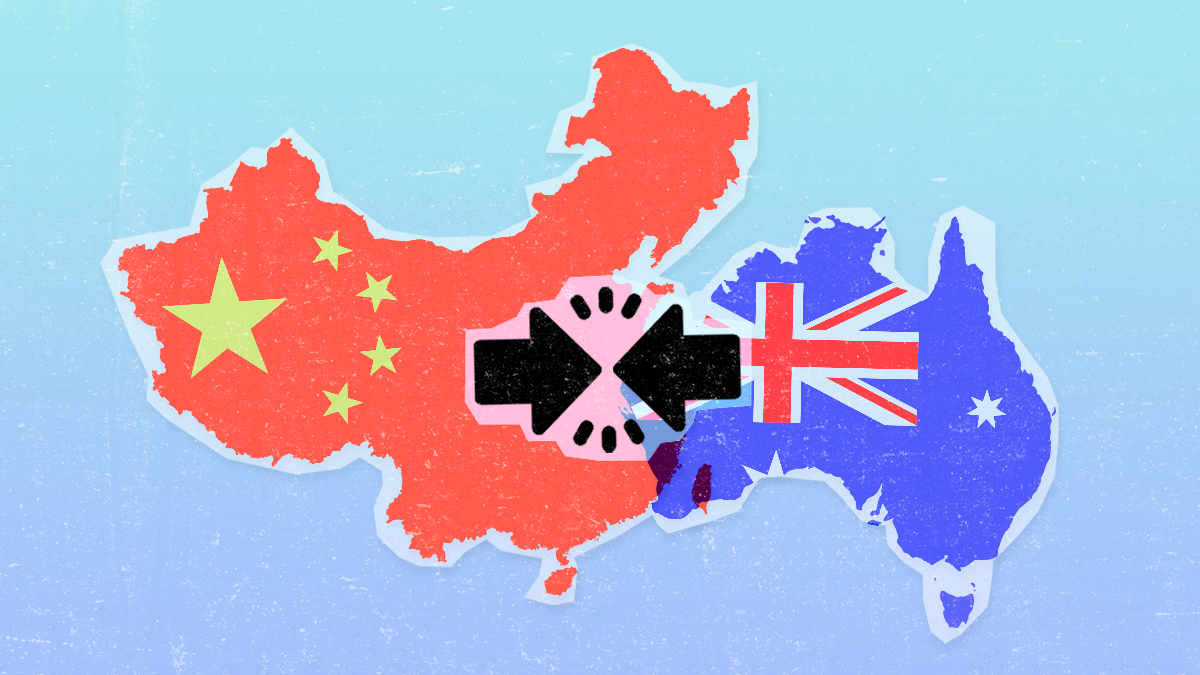For Beijing, there is thunder Down Under. Tensions between Australia and China just keep rising. After China responded to Aussie requests for a COVID investigation by imposing devastating tariffs and unofficial bans on Australian exports in 2020, Oz is pushing back hard now. Canberra on Friday accused China of “economic coercion,” while cybersecurity officials publicly confirmed malicious attacks against Australia by Chinese spy services working with Chinese telecom giant Huawei. The Aussies also say Chinese intelligence vessels are snooping around in Australia’s Exclusive Economic Zone. These accompany several clearly pro-American moves this year: the Aussies have signed on to AUKUS, an exclusive military club with Washington and London that gives them access to unprecedented weapons tech, are allowing the buildup of US military infrastructure (read, bases) on its soil, and joined America in a diplomatic boycott of the 2022 Beijing Winter Olympics. But the Australians are taking the tensions directly to China’s neighborhood, too. Canberra just signed a $770 million weapons deal with South Korea, including tech to build Howitzers — really, really big artillery guns. And even though the spat between the two continues, there is evidence that Australia, though heavily dependent on trade with China, is successfully pushing for diversity in trade partnerships.
More from GZERO Media
While the world is flooded with bad news, nowhere is it worse than Sudan, where the civil war hit the two-year mark on Tuesday. The fighting has left 13 million people displaced and over 150,000 dead, and there are reports of genocide in Darfur.
If the US won't work to return a wrongly deported man to El Salvador despite a Supreme Court ruling, are we headed toward a constitutional crisis? Trump claims China-Vietnam talks are intended to "screw" the US. Does this run the risk of pushing Vietnam to China? Saudi Arabia plans to pay off Syria's World Bank debt. Could this be a major turning point for Syria's future and its ties with regional allies? Ian Bremmer shares his insights on global politics this week on World In :60.
In this new episode of Tools and Weapons, Microsoft Vice Chair and President Brad Smith and former Microsoft CEO Steve Ballmer share insights on the early days of Microsoft and the pitch that convinced Ballmer to join the company. They explore his journey from scaling the company from a small 30-person startup to one of the most valuable companies on the planet. They also discuss how three traits — irrational confidence, realism, and persistence — have helped him succeed at Microsoft and today as the owner of the LA Clippers. Subscribe and find new episodes monthly, wherever you listen to podcasts.
Proud Source became a Walmart supplier in 2021. Today, its team has grown by 50%, and it's the largest employer in Mackay, ID. Walmart supports small businesses across the country, and nearly two-thirds of Walmart's product spend is on products made, grown, or assembled in America. It’s all a part of Walmart’s $350 billion investment in US manufacturing, which helps small businesses grow and supports US jobs. Learn more about Walmart’s commitment to US manufacturing.
The US trade deal that London has been chasing for years is closer to reality now, after US Vice President JD Vance told UnHerd on Monday that there is a “good chance” that an agreement is possible.
Thousands of Israeli soldiers, senior military officials, former intelligence operatives, military reservists, and veterans organizations have called on Israel’s prime minister to strike a deal with Hamas to free the remaining 59 hostages the group holds. Twenty-four of those captives, taken during the group’s October 7, 2023 rampage into Southern Israel, are believed still alive.
What would Ukraine be willing to offer Russia to bring an end to the war? It’s a question that’s been asked over and over, but now seems closer to reality than any point since the fighting began. As the White House negotiates with the Kremlin for a ceasefire deal, would Kyiv be willing to cede territory to get Moscow to the negotiating table? On GZERO World, Ian Bremmer sat down with former Ukrainian foreign minister Dmytro Kuleba for a sober assessment of the war—and what it will take to end it.
The topsy-turvy-tariff tale continued to swing, as the Trump administration advanced a plan on Monday that could result in new levies on semiconductors and pharmaceuticals. The news came days after US President Donald Trump announced that smartphones would be exempt from the 145% duty that he had slapped on China.
